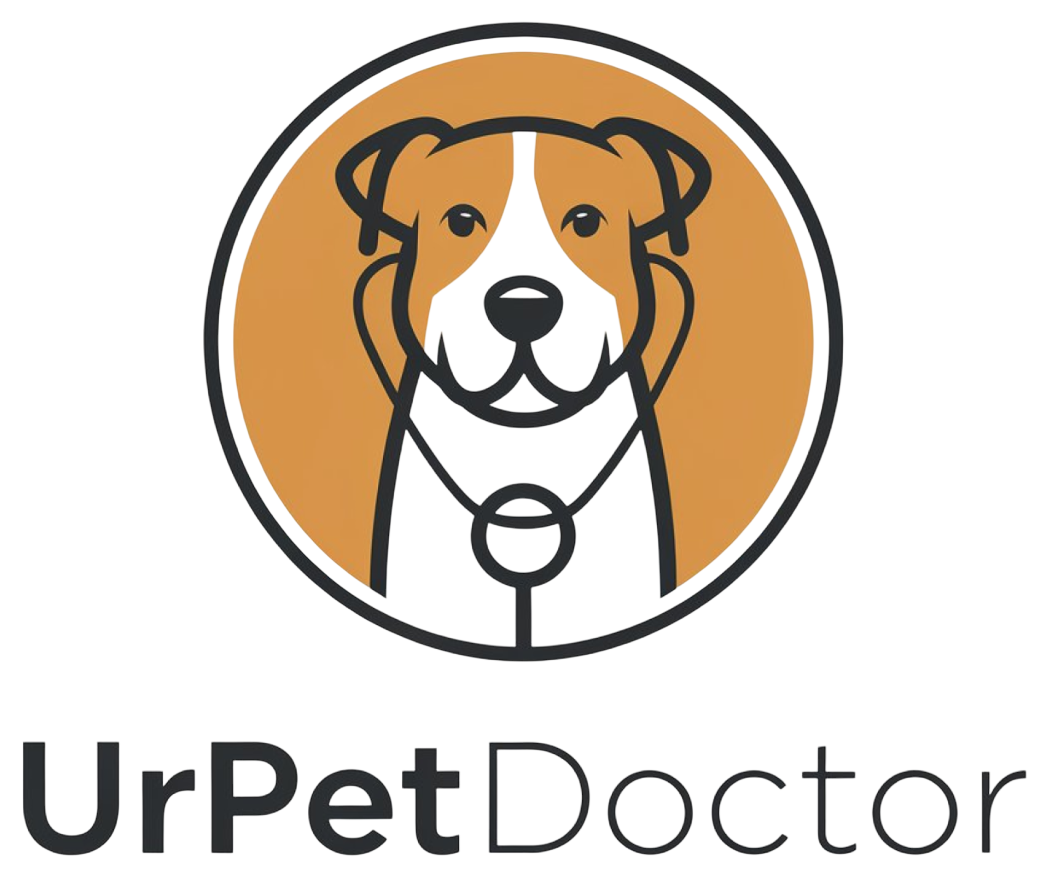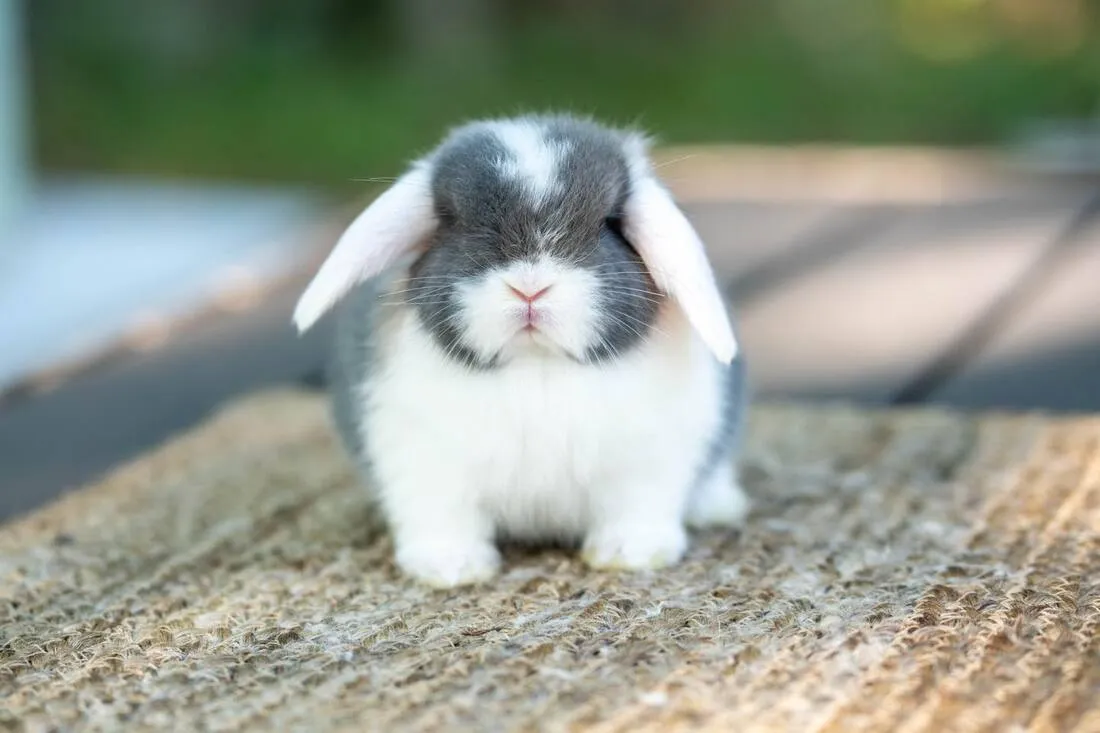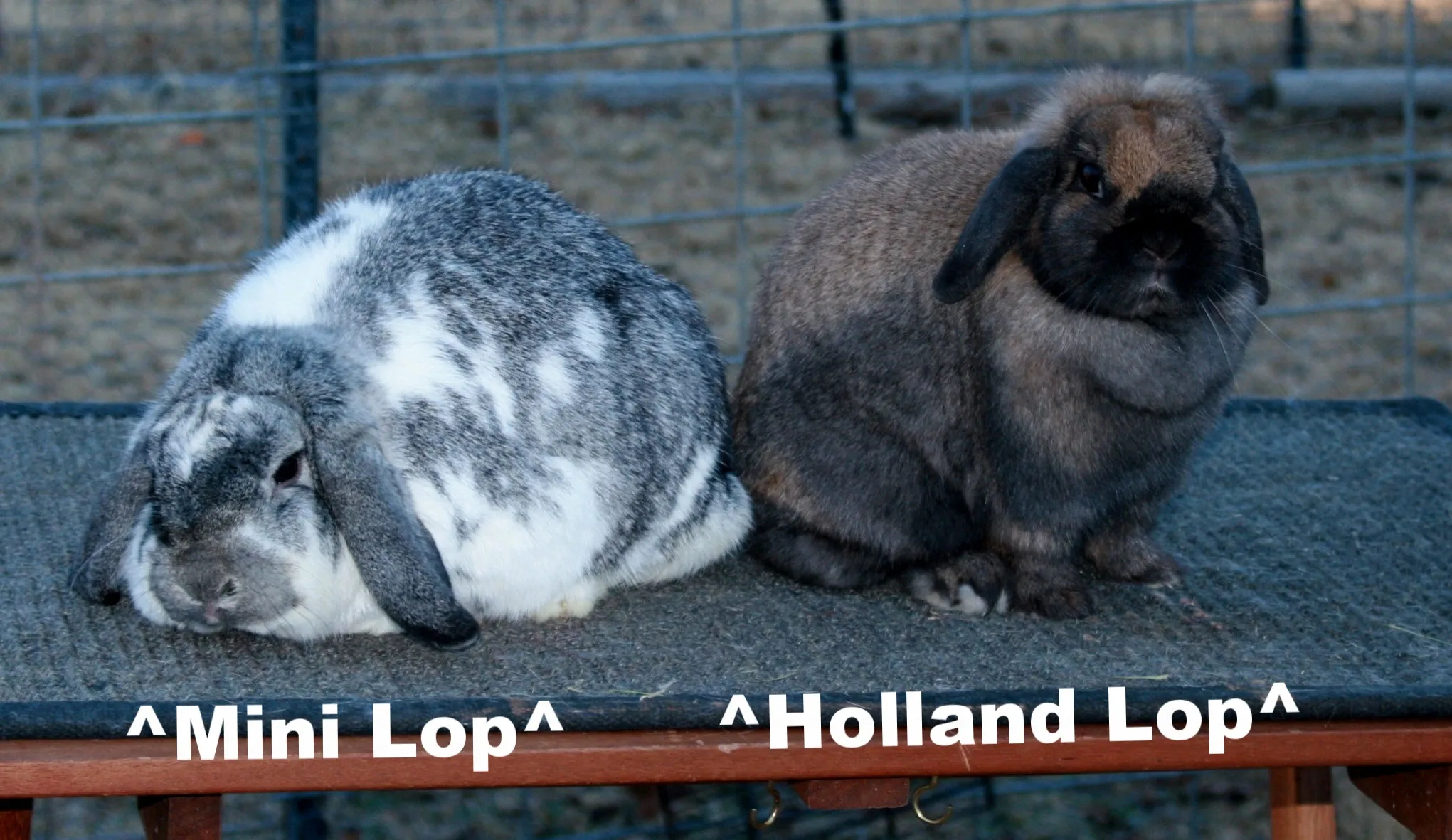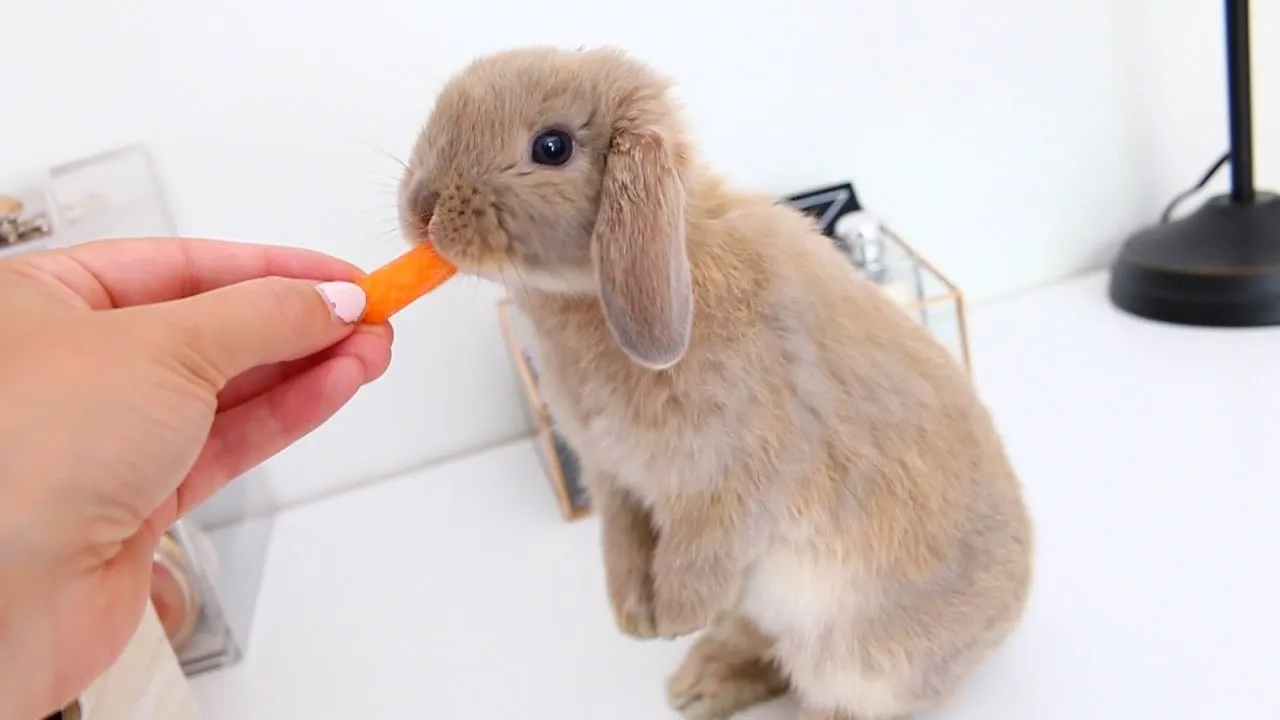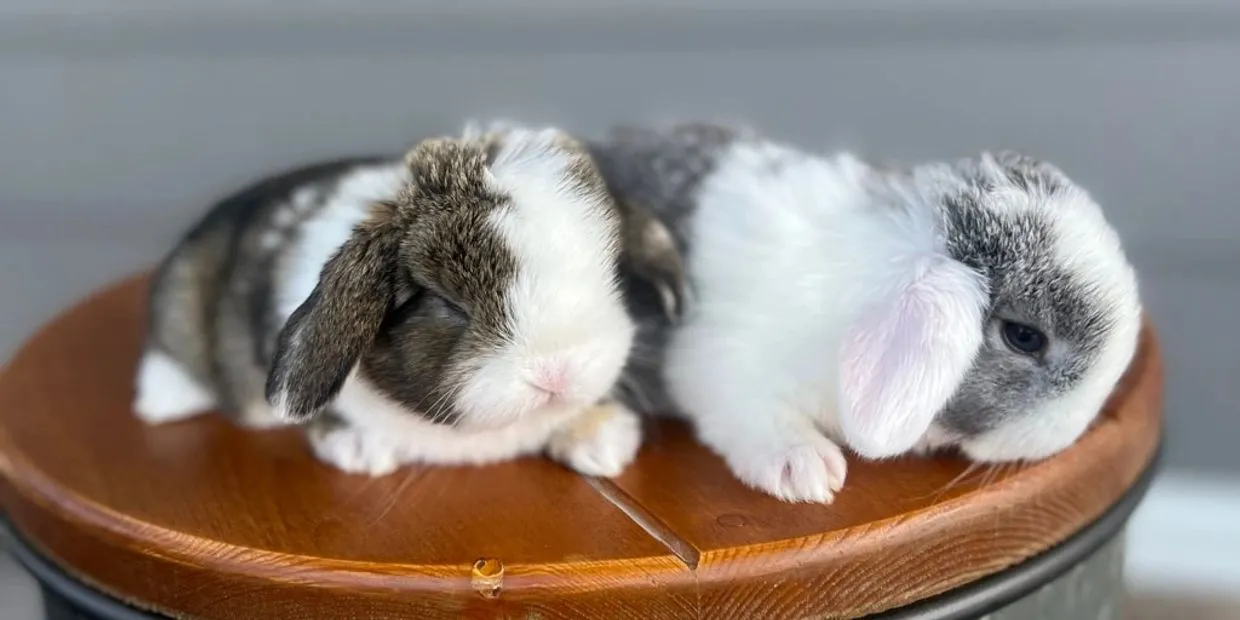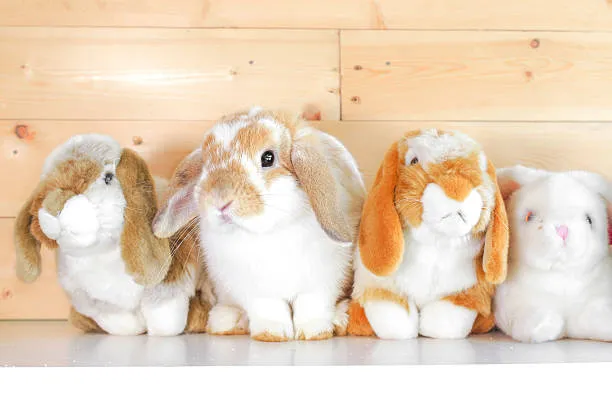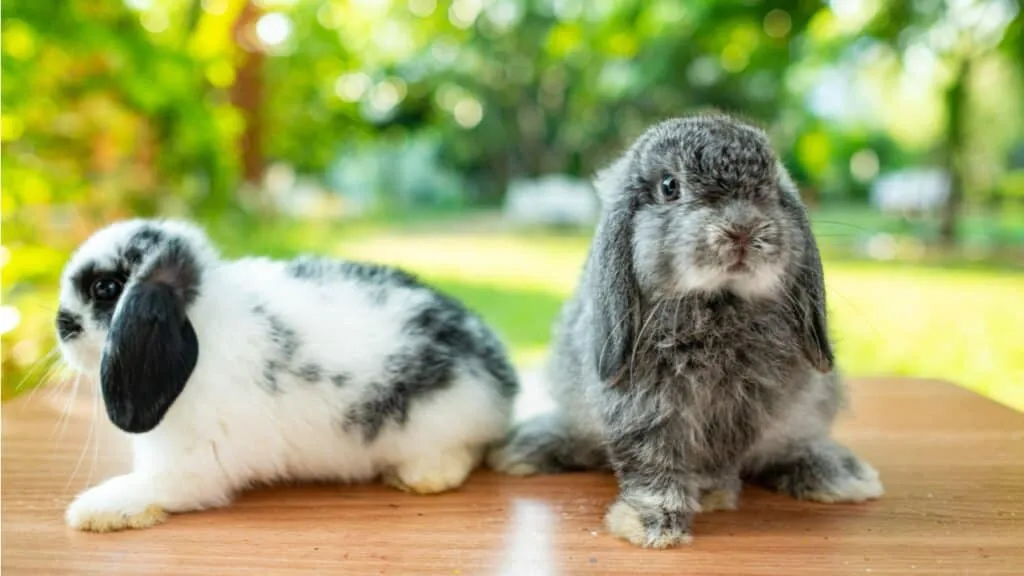Can Cats Eat Dog Food? When it comes to feeding animals, the majority of pet owners keep dogs and cats in the same residence. It is not uncommon to see that a cat has been munching on the dog’s food or even eaten the leftovers from a bowl for its owner’s dog.

The deed might appear harmless at the surface, but the question is whether cats can eat dog food and stay safe. To grasp the implications, one must look into the special dietary requirements of cats, the nature of dog food, and the dangers of cross-feeding.
Cats are obligate carnivores, so their diets must be largely meat to meet their biological requirements. Dogs, however, are omnivores and can live on a more varied diet containing vegetables, grains, and proteins. We’ll uncover why cats and dogs should stick to their bowl of food. Keep reading to learn more.
Can Cats Eat Dog Food?
A question that has existed forever! Even if your kitten is drawn to Fido’s food, the simpler answer is that they won’t enjoy it unless you change their diet. Cat and dog nutrition aren’t the same, even though they both have four legs and belong to the animal kingdom.
While both dogs and cats are omnivores, cats are specially built to require food made from animal protein to grow well. Since dog food is low in protein and taurine, your pet may not get enough of both of these nutrients.
Differences in Nutritional Needs Between Cats and Dogs
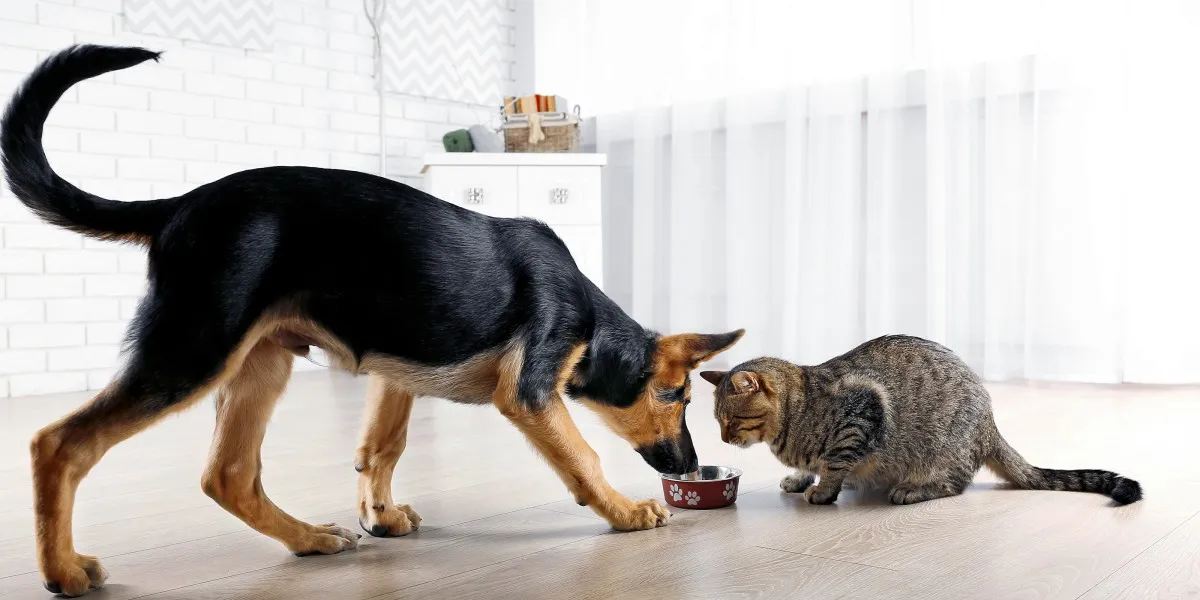
Dogs require many nutrients which are absent or present in inadequate levels in dog food. One of the most significant of these is taurine, a form of amino acid which cats must ingest via their diet.
Taurine deficiency in cats can lead to a variety of serious health issues, including heart disease and blindness. Taurine is not added to dog food as dogs can naturally synthesise it.
Another critical nutrient for cats is arachidonic acid, a type of fatty acid that is required to maintain skin and coat health, kidney function, and reproduction. Although dogs can biosynthesize the acid from plant sources, cats need it in the preformed state present in animal fats. Dog food may be low in this ingredient, leading to deficiencies in cats.
Vitamin A is also a problem. Cats do not convert plant beta-carotene into vitamin A as dogs do. They require preformed vitamin A from animal products. Dog food may not contain appropriate levels of this nutrient to meet feline needs.
In addition, cats require more protein than dogs. Although there are high-protein foods for dogs, these are not normally balanced for feline metabolism.
Occasional Consumption Versus Regular Diet
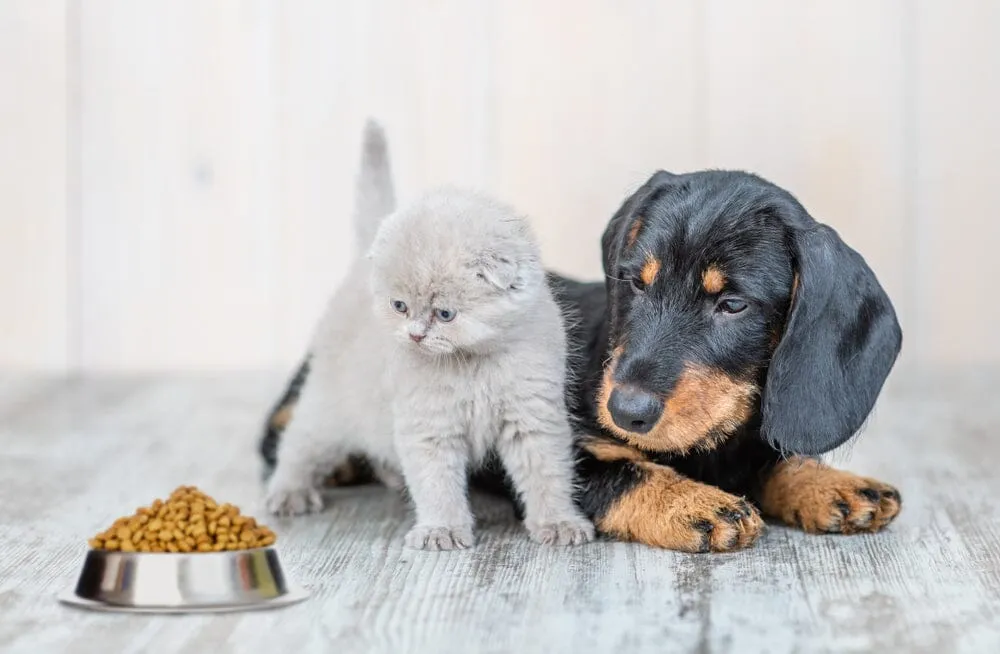
If every now and then, a cat takes a small amount of dog food, there is generally no cause for alarm. Sometimes, a few bites will do little harm. But issues arise when dog food is a regular part of a cat’s diet. Regular usage may result in nutritional imbalances which can create permanent health issues in the long term.
As an example, a diet lacking taurine will lead to dilated cardiomyopathy, a heart muscle disorder. Similarly, a lack of adequate amounts of vitamin A will lead to night blindness and skin issues.
Without a balanced diet over some time, the immune system will be compromised and a cat will be prone to infections and chronic disease.
Texture and Palatability Differences
Other than dietary content, dog and cat species also differ with regards to the taste and texture of food. Canine species usually have their food formulated with canine-friendly tastes and textures. Cats are more particular and will refuse dog food because of differences in smell and texture.
Even if cats tolerate dog food, they do not consume sufficient quantities to meet their nutritional and caloric needs for the day. This can result in malnutrition and weight loss, particularly in kittens, senior cats, or cats with pre-existing medical conditions.
Emergency Situations and Temporary Substitutes
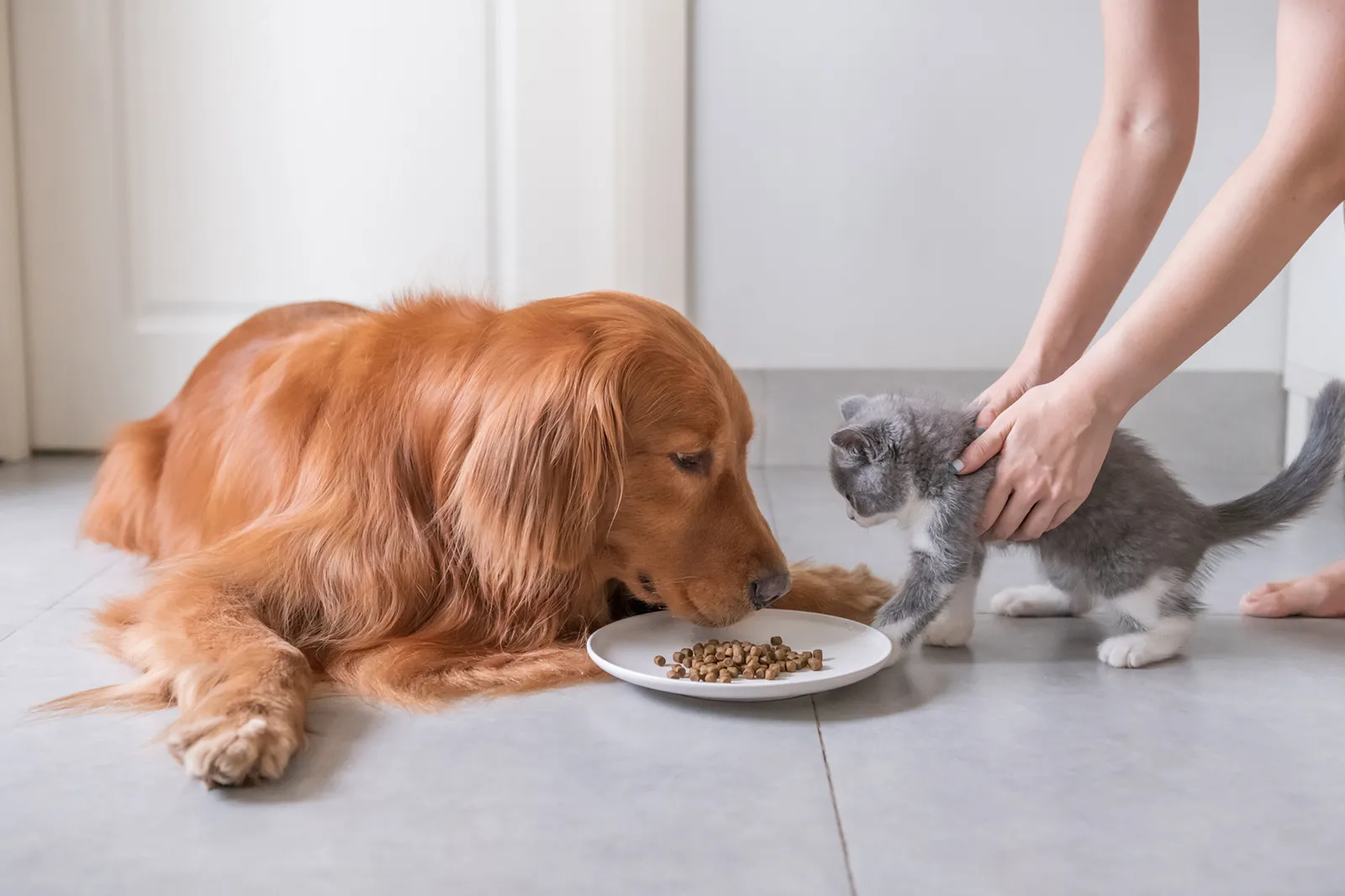
There may be situations where it is impossible to stop feeding cat food to a dog, such as in cases of emergencies when no cat food is available. Dog food can be used temporarily as a replacement for one or two days. But switching back to a normal feline diet at the earliest is necessary.
In such situations, feed high-protein dog food, with real meat as the first ingredient. Avoid foods with too much grain, artificial additives, or non-meat by-products. Even good dog food, nevertheless, should not be utilised as a substitute for nutritionally balanced cat food.
Veterinary Advice and Monitoring
If a cat ate a significant amount of dog food or you have reason to believe that it ate it regularly, then it is advisable to visit a veterinarian. A check-up may reveal any signs of deficiency or developing health issues. Vets may perform blood work in order to test the organ function, vitamin levels, and overall health condition.
Also, monitoring your cat’s behaviour and overall health is necessary. Lethargy, dull fur, weight loss, or a change in appetite may indicate that the diet is inappropriate for them. Cats do not easily show signs of discomfort, so owners must be vigilant and proactive.
Creating an Appropriate Cat Diet
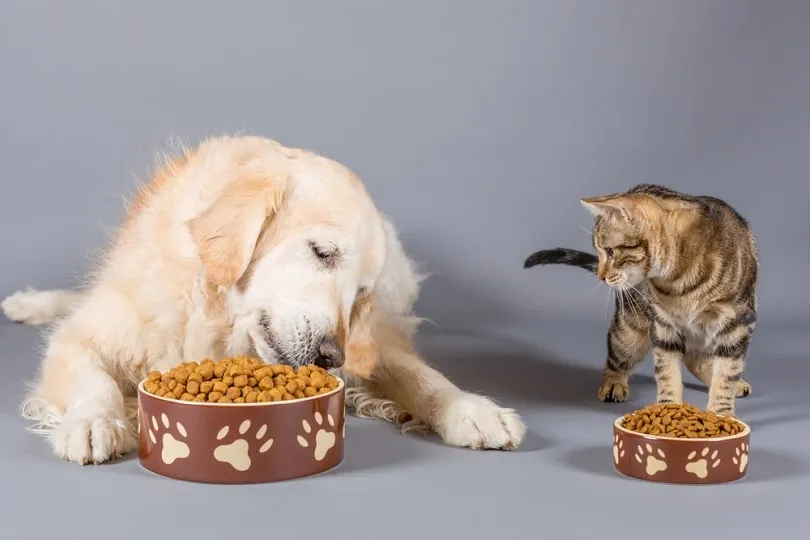
Providing cats with an appropriate diet is more than simply giving them any meat product. The ideal cat food should be complete and balanced according to the expectations of animal food organisations such as the Association of American Feed Control Officials (AAFCO). Check for labels that describe the food as “complete and balanced” for the life stage of your cat as either kitten, adult, or senior.
Protein should come from high-quality animal sources such as chicken, turkey, beef, or fish. Fats and oils should supply essential fatty acids, and the food should contain the proper amounts of vitamins and minerals.
A few of the more expensive cat foods also include supplements such as taurine, omega-3 fatty acids, and prebiotics to assist in contributing towards overall health.
The Importance of Species-Specific Nutrition
The practice of giving pets human-like foods can sometimes blur the line between safe or appropriate to consume in other animals. However, cats are very specific about what they eat and this could not be met by generic or non-carnivorous products. While it might be easiest to let a cat share a meal out of the dog bowl, it will harm the health and wellness of your pet day after day.
Knowledge of species-specific nutrition is critical to making smart choices about caring for your pet. Providing your cat with a diet appropriate for its species ensures a longer, healthier life and prevents avoidable health problems. It also emphasises the necessity of honouring the biological distinctions between animals.
Responsible Feeding Practices in Multi-Pet Homes
In households with cats and dogs, it may be challenging to give each pet its food. Dogs will test cat food, and cats will test dog food. Having specific feeding stations and consistent feeding times can help minimise cross-feeding.
Using elevated feeding stations or otherwise in-reach inaccessible stations can give cats a safe space in which to eat their food. Similarly, supervision of feeding time and the removal of leftover food at once can deter pets from bowl switching. Pet owners use microchip-activated feeders, which will only open for the specified pet.
Informing all household members, including children, why the species-specific diets are so important will also reduce accidental feeding errors. All pet care participants must be aware of the nutritional needs of each animal and what the consequences can be of ignoring them.
Conclusion
While cats will on occasion graze on dog food from curiosity or ease, never should it be a consistent source of sustenance. The specific requirements of cats make them in necessitate food that is prepared for their species. Dog food, no matter how good, simply is not up to these requirements and can produce serious complications if not altered over time.
For the health, energy, and longevity of your cat, it is critical to give them a balanced and complete cat food depending on their age, lifestyle, and health status. Always refer to your veterinarian in case of uncertainty. Proper nutrition is one of the key obligations in being a pet owner, and knowing the dangers of incorrect diets is an essential component of that responsibility.
